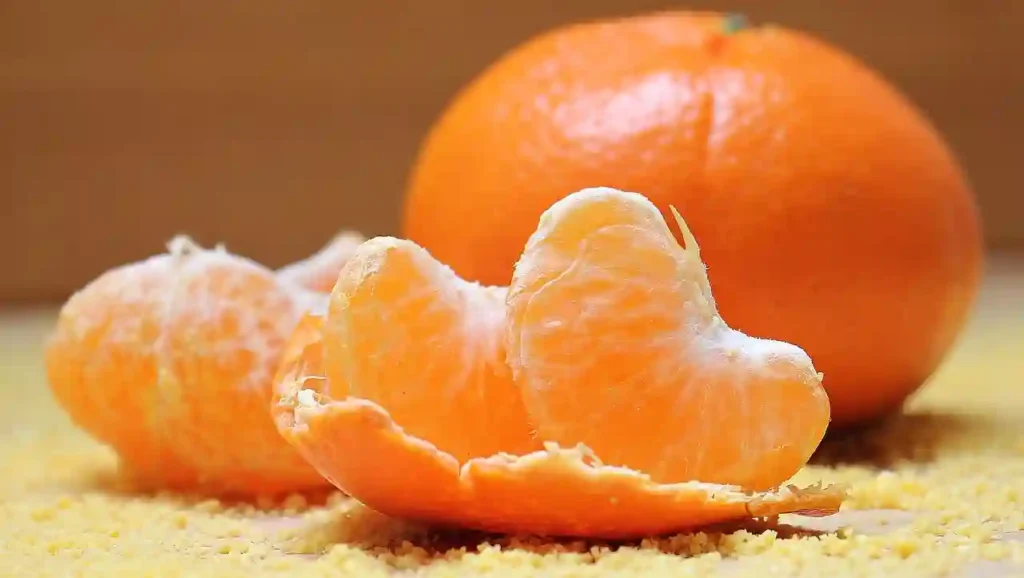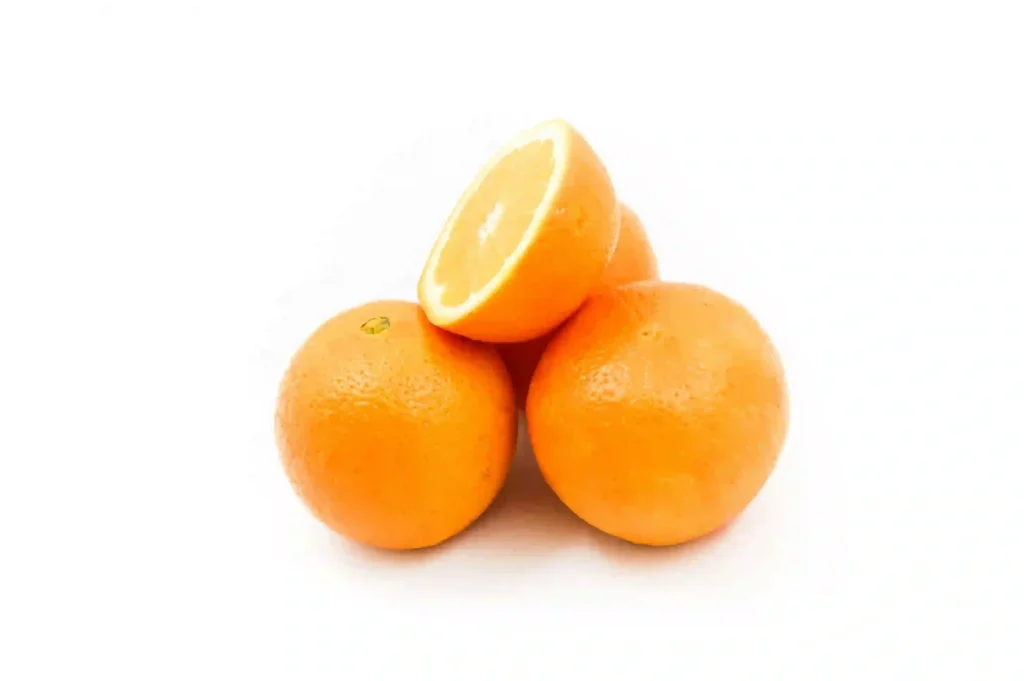Introduction

The common waste item of orange peels holds value for enriching compost. Although concerns about acidity levels in orange peels exist there is plenty of valuable soil-nourishing nutrients packed inside to benefit the ground. The correct handling technique for composting orange peels enables their break down for building high-quality compost piles.
Table of Contents
1. Can Orange Peels Be Composted?
Orange skins are suitable for composting since they fall under the category of organic ingredients that gradually break down. The successful decomposition of orange peels demands correct handling methods.
Orange peel material contains three essential nutrients which support compost growth because they supply nitrogen, phosphorus and potassium. Orange peels become decomposed by natural elements although their dense matter initially hinders the breakdown process. The decomposition process can be accelerated by reducing the size of orange peels through shredding or chopping then combining them with grass clippings and leaves. You can also learn Can You Eat Orange After Eating Fish?
2. Are Orange Peels Good for Composting?
The decomposition of compost becomes more beneficial when you add orange peels because they provide necessary nutrients that enhance both soil quality and microbial activity.
Orange peels contain potent antioxidant and mineral components which benefit soil health positively. The antibacterial qualities of orange peels affect decomposition rates since they delay decomposition yet keep mold from growing. The addition of nitrogen-rich ingredients such as vegetable scraps or coffee grounds will help increase the decomposition speed of orange peels. Irrigating the compost properly and controlling saturation helps accelerate decomposition of the materials.
3. Do Orange Peels Take Longer to Decompose?

The decomposition process for orange skins lasts longer than for other food waste items because orange peels consist of both tough outer layers and oil content.
The strong protective layer found in orange peels inhibits microorganisms from functioning which slows down decomposition. The breakdown process of decomposition takes longer due to citrus oils present in the materials. Improving the decomposition speed of orange peel compost requires cutting the peels into small pieces followed by mixing them with carbon-rich materials such as dried leaves or shredded paper to create compost balance.
4. How Do Orange Peels Affect Compost pH Levels?
The citric acid in orange peels produces little effect on compost pH because they get diluted by mixing with typical organic materials.
Orange peel acidity disappears completely during decomposition since it becomes neutralized. In a well-balanced compost pile, the presence of brown materials like leaves, wood chips, or eggshells counteracts any pH shifts. Using crushed eggshells and garden lime acts as alkaline compounds which you can add to compost containing large amounts of orange peels to accomplish neutral pH balance.
5. Should You Cut Orange Peels Before Composting?
Chopping orange peel pieces results in faster decomposition because it provides more area for microorganisms to act upon.
The complete orange peels experience slower decomposition because of their strong outer protection from skin and waxy layer. The decomposition process quickens when microbes can reach more surface area through dividing orange peels into pieces. Small pieces of orange peel mix better with complementary compost materials which in turn aids uniform decomposition of all items in the compost heap.
6. Do Orange Peels Attract Pests in Compost?
The strong citrus odor emitted by orange peels creates a protective barrier against pests making them less attractive to such creatures.
Cucurbits and insects and rodents avoid the strong odor of citrus when orange peel is used which makes this material suitable for compost creation without pest infestations. Although improper composting practices involving exposed food scraps will draw unwanted pests to the compost heap. You should hide orange peelings beneath brown compost materials specifically dry leaves or shredded newspaper for appropriate protection.
7. Can Orange Peels Be Composted in a Worm Bin?
Put orange peel remnants into a worm compost box yet use limited amounts only. Large amounts of orange peels pose dangers to worms through their acidity along with their citrus oils.
The preferred compost environment for worms consists of balance but introducing large quantities of citrus peels will produce an unpleasant acidic environment which they avoid. Small-diced orange peel pieces along with drying to decrease acidity and combination with non-acidic organic materials like shredded paper and dry leaves makes it possible to compost safely within a worm bin. Adding the peels with dry leaves and shredded paper ensures their decomposition will not damage the worm population.
8. Do Orange Peels Help or Harm Soil Health?
Orange peels improve the quality of soil through their nutrient contributions while large amounts may slow decomposition and cause short-term soil acidity.
Plant growth receives significant benefits from the nutrients of nitrogen, phosphorus and potassium that exist in orange peels. High amounts of orange peel waste will create soil acidity and take a long time to decompose which disturbs the soil chemistry. The proper method for improving nutrient usage from orange peels involves composting them first followed by thorough breakdown with other organic materials before distribution in the soil.
9. How to Speed Up the Decomposition of Orange Peels?

A proper decomposition process of orange peels can be accelerated by cutting them into tiny pieces along with the addition of nitrogen-rich compost material while controlling moisture and air levels.
The decomposition speed of large orange peels becomes slow because of their dense texture and presence of citrus oils. The breakdown process operates faster when you cut the orange pieces into smaller shapes due to increased surface area. The decomposition can be accelerated if compost activators such as grass clippings and manure are added to the mix. The compost breakdown process advances more quickly when people both frequently mix their compost pile and preserve dampness within it.
10. Are Orange Peels Safe for Organic Gardening?
Orange peels become suitable for organic gardening after proper composting process. The peels deliver vital elements that plants need while simultaneously protecting them from garden pests.
The nutritional vitamins and mineral content of orange peels helps plants develop successfully. The citrus aroma from orange peel produces an organic repelling effect against ants and aphids. Plants may react negatively to acidic fresh된 peel during use so organic gardeners should first compost them before application. After decomposition the peels provide organic material that helps develop healthier soils through natural means instead of synthetic fertilizers.
11. Can Moldy Orange Peels Still Be Composted?
Moldy orange peels are suitable for composting since the decomposition process requires mold as well as other natural microbiological elements to break down organic materials.
Mold develops through the combination of water with organic substances which enhances decomposition. Mold on the peels acts as a source of fungi which supports nutrient processing in compost ecosystems. Large amounts of mold produce offensive odors that affect the composting process. Add moldy peels to dry compost ingredients such as straw or leaves while frequent turning of the compost helps create airflow that reduces damp conditions.
12. What Are the Best Ways to Compost Citrus Peels?
People should chop citrus peel pieces before adding them to compost while maintaining material acidity ratio with brown materials alongside adequate compost moisture content and ventilation conditions.
Oranges together with other citrus peels experience slow decomposition because of their essential oils which work alongside their thick peel layers. Shredding them speeds up decomposition. You should combine citrus peels with carbon-rich materials especially dry leaves to achieve proper acidity balance. Proper breakdown of compost results from regular maintenance of the pile. Citrus peels must be restricted when using a worm bin due to potential worm harm while their drying needs to be completed prior to a worm bin addition.
Conclusion
Proper application of orange peel pieces brings significant value to compost systems. The decomposition process for orange peels becomes more efficient yet slower when you properly prepare and mix them with other organic components. Traditional bins as well as worm bins and garden soil all benefit from composted orange peels because they improve soil quality and boost waste recycling sustainability.